This article needs additional citations for verification .(August 2020) |
Phillip George Rock (July 30, 1927 - April 3, 2004) was an American actor, author and screenwriter.
This article needs additional citations for verification .(August 2020) |
Phillip George Rock (July 30, 1927 - April 3, 2004) was an American actor, author and screenwriter.
Phillip Rock was the son of Vitagraph silent film star, producer and director Joe Rock and Australian silent film actress Louise Granville and was the nephew of assistant director, cameraman and actor Murray Rock.
He was raised in both England and Beverly Hills then become a page at CBS. He made his motion picture debut as a film actor in The Mask of Dimitrios (1944). He served in the United States Navy towards the end of World War II. [1] After completing his naval service Rock made some more film appearances and began writing screenplays.
In 1951 Rock's older sister actress Felippa Rock married the Australian actor Michael Pate. Pate and Rock collaborated on the story that became the screenplay of Escape from Fort Bravo (1953), Rock's first screenwriting credit. The pair later cooperated on the screenplay for Allan Dwan's final film Most Dangerous Man Alive (1960).
In 1967 Rock made his debut as a novelist with a novelization of his screenplay The Extraordinary Seaman for John Frankenheimer. The film was shot in 1967 but not released until 1969 with what some feel was tampering of the screenplay and completed film by MGM. The experience led Rock to vow to never have any of his novels made into films.
His next novel was The Dead in Guanajuato (1968) set in Mexico where Rock worked on The Extraordinary Seaman.
In 1969 he began a series of novelisations of successful Hollywood films such as The Cheyenne Social Club (1969), ...tick...tick...tick... (1970), Dirty Harry (1971), A Gunfight (1971), Hickey & Boggs (1972), and High Plains Drifter (1973) that led him to the attention of Ernest Tidyman. Tidyman had Rock assist him with his 1974 novel Dummy with Rock writing manuscripts for his later Shaft novels Goodbye Mr. Shaft (1973) and The Last Shaft (1975). [2]
Rock returned to writing novels with Flickers (1977) loosely based on his father's career in 1920s Hollywood. He followed this with a trilogy of novels of an English family of the 1920s the Stanmores of Abbingdon Pryory with The Passing Bells (1979), Circles of Time (1981) and A Future Arrived (1985).
Rock died of cancer in 2004 and was survived by his son film actor Kevin Rock and two grandchildren.

Edward Davis Wood Jr. was an American filmmaker, actor, and pulp novelist.

William Goldman was an American novelist, playwright, and screenwriter. He first came to prominence in the 1950s as a novelist before turning to screenwriting. Among other accolades, Goldman won two Academy Awards in both writing categories—once for Best Original Screenplay for Butch Cassidy and the Sundance Kid (1969) and once for Best Adapted Screenplay for All the President's Men (1976).

Shaft is a 1971 American blaxploitation crime action thriller film directed by Gordon Parks and written by Ernest Tidyman and John D. F. Black. It is an adaptation of Tidyman's novel of the same name and is the first entry in the Shaft film series. The plot revolves around a private detective named John Shaft who is hired by a Harlem mobster to rescue his daughter from the Italian mobsters who kidnapped her. The film stars Richard Roundtree as Shaft, alongside Moses Gunn, Charles Cioffi, Christopher St. John and Lawrence Pressman.

Hubert "Cubby" Selby Jr. was an American writer. Two of his novels, Last Exit to Brooklyn (1964) and Requiem for a Dream (1978), explore worlds in the New York area and were adapted as films, both of which he appeared in.
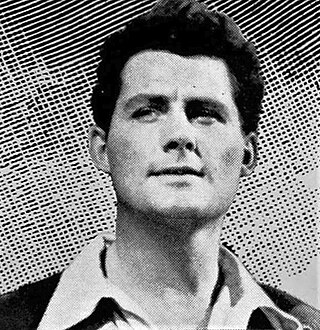
Robert Archibald Shaw was an English actor, novelist, playwright and screenwriter. Beginning his career in theatre, Shaw joined the Shakespeare Memorial Theatre after the Second World War and appeared in productions of Macbeth, Henry VIII, Cymbeline, and other Shakespeare plays. With the Old Vic company (1951–52), he continued primarily in Shakespearean roles. In 1959 he starred in a West End production of The Long and the Short and the Tall.
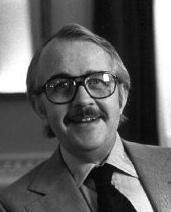
Ernest Ralph Tidyman was an American author and screenwriter, best known for his novels featuring the African-American detective John Shaft. His screenplay for The French Connection garnered him an Academy Award for Best Adapted Screenplay, as well as a Golden Globe Award, a Writers Guild of America Award, and an Edgar Award. In 1971, he also co-wrote the screenplay for the film version of Shaft with John D. F. Black.

John Shaft is a fictional private investigator created by author/screenwriter Ernest Tidyman for the 1970 novel of the same name. He was portrayed by Richard Roundtree in the original 1971 film and in its four sequels—Shaft's Big Score!, Shaft in Africa, Shaft (2000) and Shaft (2019)—as well as in the seven 1973–74 Shaft television films. Samuel L. Jackson portrayed his son, named John Shaft II, in Shaft (2000) and Shaft (2019), and Jessie Usher portrayed the character's grandson in Shaft (2019). The blurb on the paperback on which the original film is based states Shaft is "Hotter than Bond, cooler than Bullitt."

Shaft in Africa is a 1973 American blaxploitation film directed by John Guillermin, and the third film of the Shaft series, starring Richard Roundtree as John Shaft. Stirling Silliphant wrote the screenplay. The film's budget was $1.5 million, but the film was a box office flop, grossing just $1 million. Metro-Goldwyn-Mayer quickly sold the property to television, but the television series was cancelled after just seven episodes.
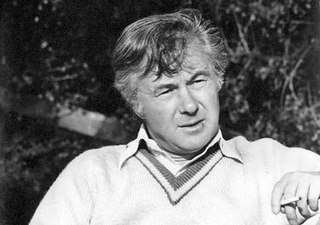
Bryan Forbes CBE was an English film director, screenwriter, film producer, actor and novelist described as a "Renaissance man" and "one of the most important figures in the British film industry".
Stirling Dale Silliphant was an American screenwriter and producer. He is best remembered for his screenplay for In the Heat of the Night, for which he won an Academy Award in 1967, and for creating the television series Naked City, Perry Mason, and Route 66. Other features as screenwriter include the Irwin Allen productions The Towering Inferno and The Poseidon Adventure.
Gavin Lambert was a British-born screenwriter, novelist and biographer who lived for part of his life in Hollywood. His writing was mainly fiction and nonfiction about the film industry.
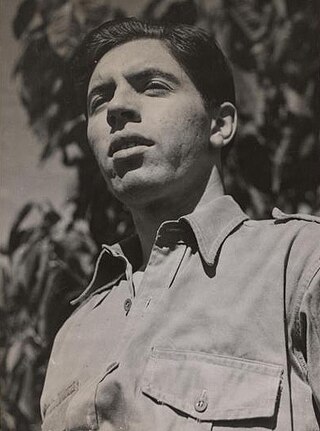
Michael Pate OAM was an Australian actor, writer, director, and producer, who also worked prolifically as a supporting actor in Hollywood films and American Television during the 1950s and 1960s.

The Love Machine is the second novel by Jacqueline Susann, the follow-up to her enormously successful Valley of the Dolls (1966). Published by Simon & Schuster in 1969, the book was a New York Times number-one best seller.
Robert Woodruff Anderson was an American playwright, screenwriter, and theatrical producer. He received two Academy Award nominations for Best Writing, Screenplay Based on Material from Another Medium, for the drama films The Nun's Story (1959) and I Never Sang for My Father (1970), the latter based on his play.
Lawrence "Larry" Peerce is an American film and TV director whose work includes the theatrical feature Goodbye, Columbus (1969), the early rock and roll concert film The Big T.N.T. Show (1965), One Potato, Two Potato (1964), The Other Side of the Mountain (1975) and Two-Minute Warning (1976).

The Exquisite Sinner is a 1926 American silent drama film directed by Josef von Sternberg and adapted by Alice Duer Miller from the novel Escape by Alden Brooks. Starring Conrad Nagel and Renée Adorée, the Metro-Goldwyn-Mayer (MGM) never given a general release. No known print of the film has been recovered to date. Later that same year a second feature film Heaven on Earth, directed by Phil Rosen was released with the same cast and same sets, but a different screenplay. Rosen's version performed poorly at the box office. Sternberg reported, "the result was two ineffective films instead of one.” The American Film Institute Catalog Feature Films: 1921-30 by The American Film Institute.

Richard Jessup was an American author and screenwriter. He also wrote under the name of Richard Telfair.
Lewis John Carlino was an American screenwriter and director. His career spanned five decades and included such works as The Fox, The Brotherhood, The Mechanic, The Sailor Who Fell from Grace with the Sea, I Never Promised You a Rose Garden, Resurrection, and The Great Santini. Carlino was nominated for many awards, including the Academy Award for Best Adapted Screenplay.
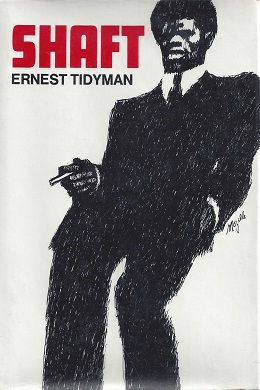
Shaft is a 1970 detective novel by Ernest Tidyman. The novel debuted the character John Shaft and inspired both the 1971 film Shaft and its sequels.
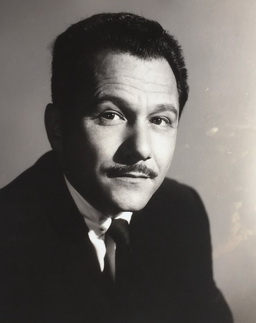
Edward Lewis was an American film producer and writer. As producer, he worked on nine films in partnership with actor Kirk Douglas; from 1958 to 1966, Lewis was Vice-President of Kirk Douglas film production company, Bryna Productions, as well as its subsidiaries, Brynaprod, Joel Productions and Douglas and Lewis Productions. He also produced nine films directed by John Frankenheimer. Lewis also wrote several books.